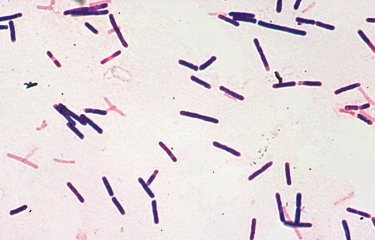In early September 2023, several people were infected after eating home-canned sardines in a bar in Bordeaux. By September 14, 2023, the outbreak had led to the death of one person, and 10 others had been admitted to hospital. Here is a detailed timeline of events and the Institut Pasteur's role in managing this health crisis.
On September 11, 2023, the Nouvelle-Aquitaine Regional Health Agency (ARS) received reports of several probable cases of botulism. Seven people were being treated at Bordeaux University Hospital for neurological or digestive problems. Over the previous week they had all gone to the same bar in Bordeaux and eaten home-canned sardines. Their symptoms were characteristic of foodborne botulism caused by the Clostridium botulinum bacterium. "If canned food is not sterilized properly, Clostridium botulinum bacteria can multiply and produce a toxin. People become infected when they eat the food," explains Gauthier Delvallez, Deputy Head of the National Reference Center (CNR) for Anaerobic Bacteria and Botulism.
Confirmation of botulism by the Institut Pasteur
An investigation was launched. Following the report of the suspected cases, the departmental authority for the protection of populations (DDPP) for Gironde took food samples to check for the presence of botulinum toxin in the canned sardines believed to have caused the outbreak. By the following day, September 12, the situation had worsened: one person had died and seven others had been admitted to intensive care. By September 14, 15 suspected cases of botulism had been identified and 10 people had been admitted to hospital. Although the characteristic symptoms of botulism were clear, at this stage an official biological diagnosis had not yet been made. The CNR for Anaerobic Bacteria and Botulism removed any lingering doubts: it analyzed the food samples collected by the DDPP and the samples taken from the hospitalized patients and confirmed that several patients had been infected with botulism type B and that the bacteria and the toxin had been found in the canned sardines.
Appropriate hospital treatment as early as possible
There are very few tools available to tackle this incredibly rare form of food poisoning, which causes 15 to 20 cases every year on average in France. In severe cases, treatment of botulism requires intensive respiratory therapy with mechanical ventilation.
If botulism is suspected, administering botulism antitoxin within 24 to 48 hours of symptom onset can reduce time in hospital. The vast majority of patients treated immediately recover without any long-term effects, but treatment and convalescence may take several months.
CNRs, sentinels guarding against pathogens
Close collaboration between national and regional health authorities and the CNR for Anaerobic Bacteria and Botulism at the Institut Pasteur led to rapid and unequivocal identification of the bacteria responsible for what was the most serious outbreak of foodborne botulism to date in France. This collaborative work is crucial to ensure that people who have been or may be infected receive the most effective treatment possible.
Find out more
- Learn about the role and missions of the Institut Pasteur’s National Reference Centers in the "Sentinels" special report
- See the botulism fact sheet
- See the report on the symptoms and treatment of foodborne botulism broadcast on September 13, 2023 during the 8pm news program on France 2 (between minutes 3:08 and 5:23)




